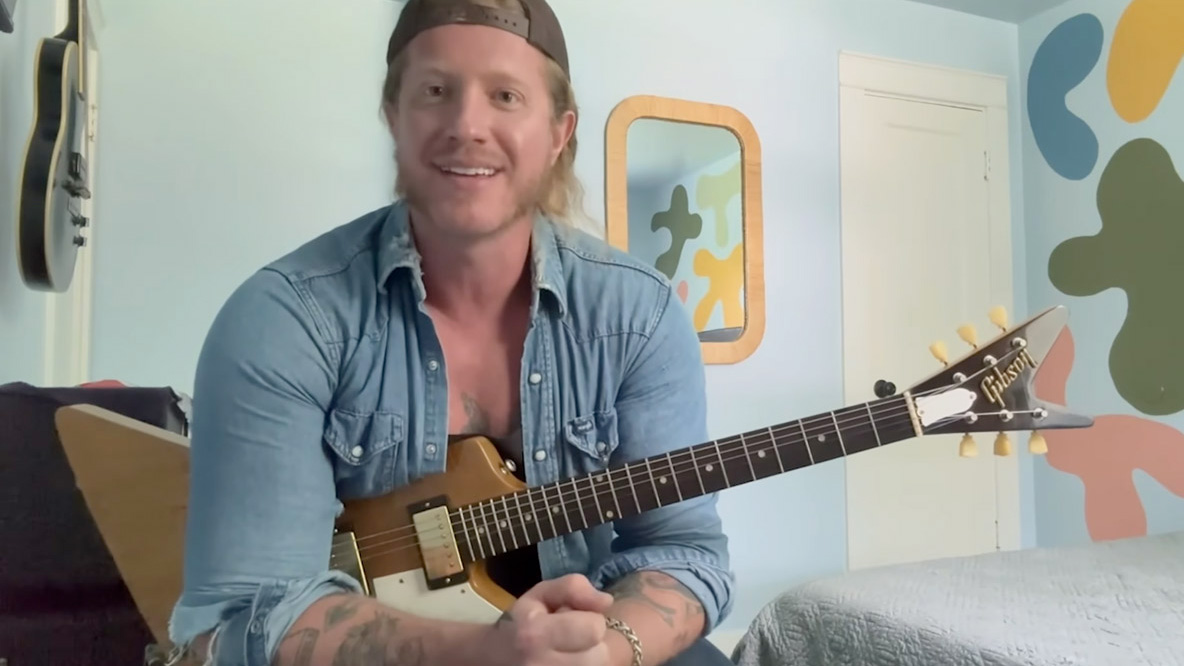Jerry Cantrell: “I'd plug into Eddie Van Halen's amp and sound like Jerry Cantrell. Eddie would play through my s**t and sound like EVH. It's in the hands. It's in your flesh”
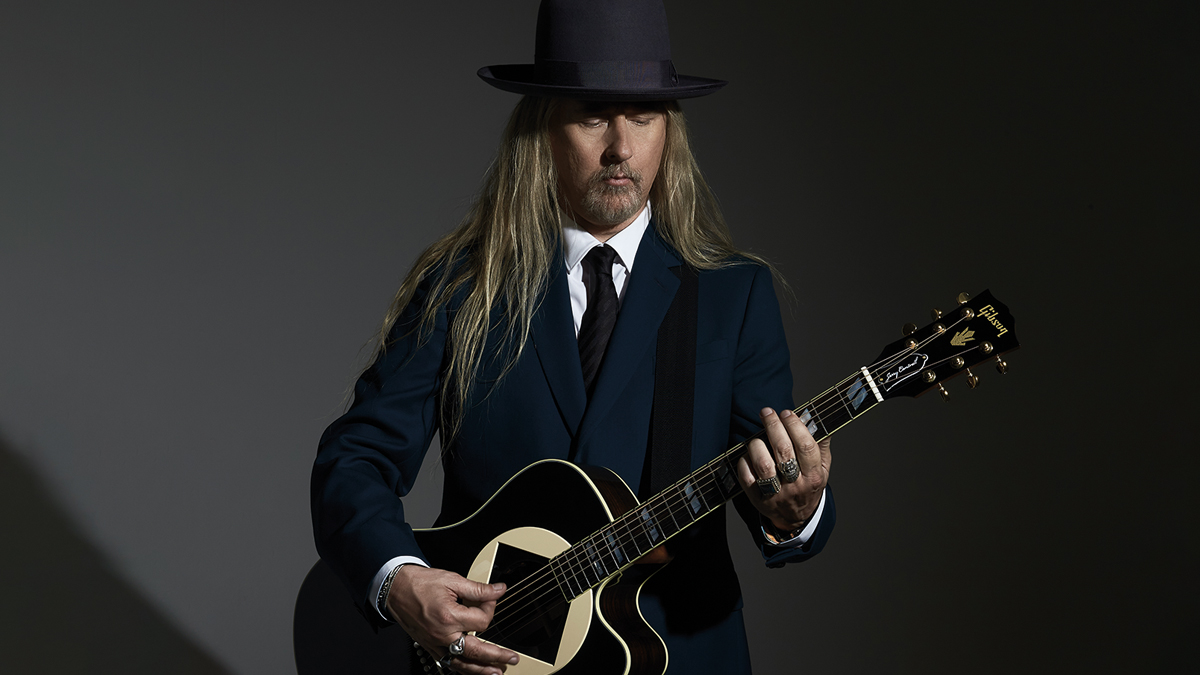
Jerry Cantrell likes to keep nostalgia at arm’s length. “I never look back too much,” he says. “I think if you spend too much time on the past, you’re not moving forward. I was never the kind of guy to just kick back and cruise. I’m always thinking about getting over the mountain. I try to keep my eye on what’s in front of me.”
Even so, the guitarist is happy to spend part of our interview strolling down memory lane, reflecting on those years – now three decades ago – when his band Alice in Chains, along with fellow Seattleites Soundgarden, Pearl Jam, Nirvana and others, fused punk, hard rock and metal for a sound that revolutionized music.
“It was a cool time,” he says. “It was very personal, and that’s what made it cool. It was exclusive to you and your buddies and your extended friends who would show up to gigs. The musical community in Seattle was going on for a couple of years, and you could feel something percolating. It was just a good energy. Everybody was in a fucking band.”
As for how he now feels looking back at that era in the rear-view mirror, Cantrell lets out a thoughtful sigh. “Sometimes that whole period feels like yesterday; other times it feels like it’s an eternity ago,” he says. “I think we all know that the clock moves a little bit faster than you’d like. Most of the time, it’s a good distance away, but I have those other moments, too.”
For most people, time stood still throughout much of 2020 during the initial wave of the COVID pandemic, and Cantrell was no exception – in virtual lockdown, he was forced to stay close to his home base in Seattle.
Before COVID hit, he had just recorded most of the basics for his new solo album (a three-way production he shares with Tyler Bates and Paul Figueroa) in Los Angeles, and once he returned to Seattle he resumed work on the record at home studios in one-on-one sessions, or by sending files back and forth between musicians.
In a strange way, Cantrell almost welcomed the isolation. “I was glad to have something to work on through the whole thing,” he says. “To be honest, it didn’t feel very different from other recordings – being in a studio feels like you’re in a submarine or a cave for months anyway. The only difference was the stress of worrying that nobody got sick, or more important, getting anybody sick. We were all trying to figure it out together, as was the entire globe, with the little information we had, learning a little more as time went on.”
All the latest guitar news, interviews, lessons, reviews, deals and more, direct to your inbox!
Depending on how you keep score, Brighten is either Cantrell’s third or fourth solo album (in 1998 he issued Boggy Depot, and 2002 saw the release of Degradation Trips, Volumes 1 and 2), and as the record’s optimistic and walloping title track suggests, the guitarist is in a pretty good place these days.
Perhaps owing to the prevailing notion that he’s a grim and gloomy dude, he lets out a warm laugh and says, “I feel like I’ve been in a pretty good place most of my life. I’ve been a lucky fellow to be able to make something that I care about and use my creativity as an artist, and also as a way to support myself. It’s my job.”
Cantrell kicks Brighten off with Atone, a dusty and bluesy roar that seems to encapsulate everything about his signature sound – the gnashing stacked guitars, sweet-and-sour vocal harmonies and a king-sized riff that sticks to your ribs – in one neat package.
There are few shades of darkness and solemnity; Siren Song is a heavy-duty mood piece, and the album closes with a chilling cover of Elton John’s Goodbye that pairs doom-drenched guitars with swelling orchestral strings.
But for the most part, Cantrell imbues his songs with a feeling that’s startlingly sunny. Thanks to the pedal steel licks of Michael Rozon, a breezy Americana charm blows through country rockers Prism of Doubt and Black Hearts and Evil Done. And the gutbucket swagger of Dismembered echoes the freewheeling, down-home vibe of early '70s Stones.
Among the tight-knit group of players Cantrell enlisted for Brighten (Gil Sharone and Abe Laboriel Jr. share drumming duties) is his longtime friend and fellow Seattleite Duff McKagan.
“Like me, Duff’s also got another band that’s pretty good,” Cantrell quips. On some tracks, McKagan came up with his own bass ideas, while on other cuts he deferred to Cantrell, preferring the guitarist’s bass performances on demos. And on a couple of other songs, the two would “Frankenstein” parts, passing a bass back and forth between them.
“Duff was very cool and would say, ‘You should keep that part you played. I don’t know if I can do it justice,’” Cantrell recalls. “I have such respect for him. He’s a dear friend and a fellow Washingtonian. It really meant a lot to me to have him on the record.”
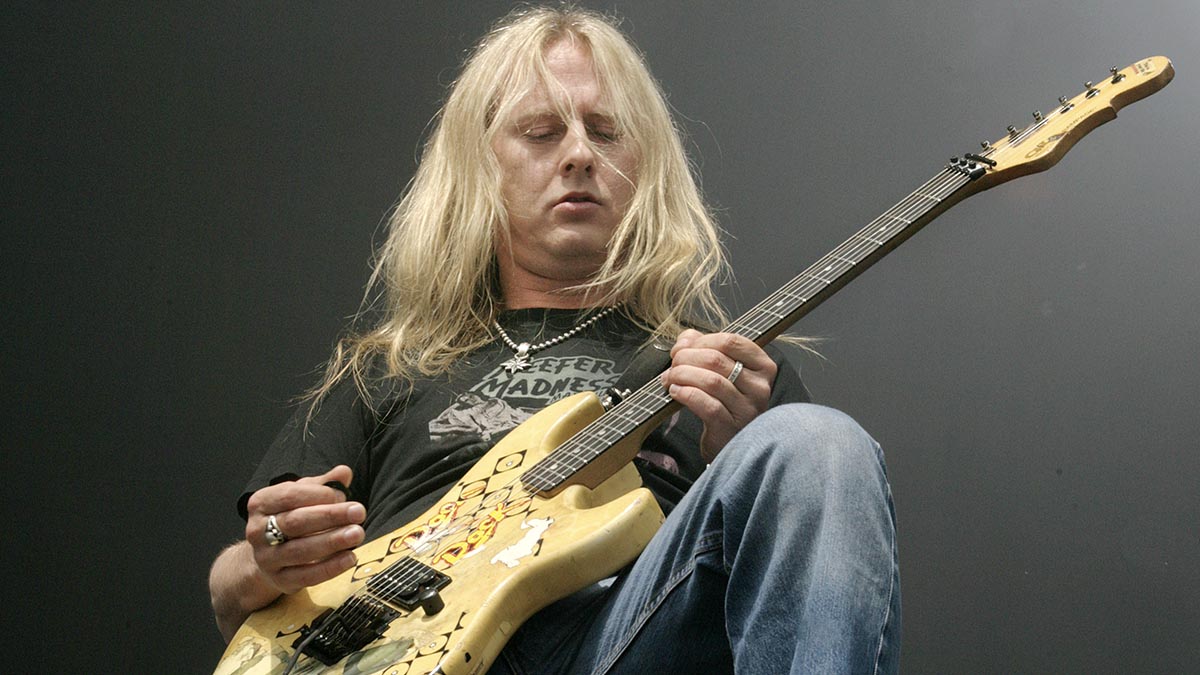
If his own listening tastes are any kind of gauge, the guitarist thinks Brighten will have some legs once it’s released. “Whenever somebody else hears a record, the artist is well fucking tired of it,” Cantrell says. “I’ve been living with this one a lot longer than I normally would, and it still sounds good to me. It’s got some light and some space and some things that are unique.
“You want to be familiar enough that you don’t lose people, but at the same time, you want to get into some territory that maybe you haven’t covered yet. And I think that this record is full of that. It’s just a real rock ‘n’ roll record.”
Staying with Seattle for a bit, I’m curious: In the late '80s, before Alice in Chains got signed, and before the town became the epicenter for grunge, did you guys think that maybe you should relocate to New York or L.A.?
“Actually, I think the reason we were able to develop into what we were was because we weren’t in L.A. or New York, where the record companies were. We were outside the view a little bit until somebody started to notice. Soundgarden kind of started it off when they signed with A&M. Sub Pop was definitely a thing, but what took it worldwide was Soundgarden going to a major and [Mother] Love Bone getting a deal. Then we got signed by Columbia, and it just kept rolling.”
In the early days of the band, was it hard for Alice to get gigs? Was the band embraced on the scene pretty quickly?
“There weren’t a whole lot of places to play at first. There were a couple of bars – the Central Tavern, the Vogue. We would play anywhere. We played VFW halls and roller rinks. There was an old converted garage; I remember going to see Mudhoney there.
“We would just make do. It was really cool to be a part of it, especially at that age because you have dreams and feelings about what you’d like to do, and you’re all the same age. At that age it’s magical; you’re kind of discovering stuff for the first time and going through it together.”
So even while you’re searching for places to play, did real success feel attainable? What did success mean to you at the time?
“Things were happening enough. We were cool and it was really pure. Our first big goal was to sell out the Central Tavern – that’s the local legendary bar down in Pioneer Square. What mattered to us was being recognized as being a good band that could stand alongside a whole bunch of really good fucking bands from Seattle.”

Present company excluded, who was the best guitar player in Seattle back then? Who was just killing it?
“It’s tough to say; everybody’s so unique. Kim Thayil is crazy. He’s got a crazy style that is unique unto itself. It’s a blend of different styles – super-big and out of control, but right on the fucking edge of coming off the tracks and going right back on. I always admired his playing.
“I always liked Stone Gossard’s style, too. Super-punk, but also really melodic and based in some kind of regular rock, hard rock, blues-based riffs and stuff. Kurt Cobain was like a cross between punk and pop. His style had a lot of ferocity, and he wrote super-memorable, simple stuff. I don’t know… If I had to pick one, it would be Kim.”
Even though grunge owed a lot to metal, at a certain point in the '90s it seemed as if alternative bands wanted to distance themselves from various aspects of the genre – it wasn’t cool. Did you feel that?
“I’m not sure about that. There might have been some changes about that attitude, maybe outwardly, verbally, but if you listen to the music, it’s in there. It’s in all of the bands. And if you listen to the rock radio up here, that’s the thing.
“Rock radio was a super-strong staple. KZOK and KSW – and there was a cool college station that played all sorts of shit. This is a very rock-friendly environment; the Northwest has always been that way. Listening to the radio every night, I was awash in that stuff.”
What about anti-major-label sentiments in the Seattle community? Were you hearing things from your friends in town like, “Major labels are the enemy”?
“With Sub Pop, it kind of went hand in hand with how we all started and operated and viewed ourselves. It was all do-it-yourself and not having some A&R guy telling you what to do. You did what you wanted. By the time the majors started coming around, we were all well-versed and well on our way. Collectively as a community, all of the bands had a real foundation and established what their identities were.
So we were kind of let loose on the world, and that kicked off pretty early. I guess that helped cement the idea that we didn’t fucking need anybody telling us what to do. It was like, 'We can write songs. We know how to rock. We know what our band sounds like.' It was cool. I always loved that we – and most of us – had that experience. I think that’s why the records that were created had such impact.”
Kim Thayil is crazy. He’s got a crazy style that is unique unto itself. I always liked Stone Gossard’s style, too. Super-punk, but also really melodic
So much of the Seattle sound was built on raging guitars, but early on you started introducing acoustics into the mix. What was the initial reaction? Was everybody in the band on board?
“The acoustic guitar has a thing all its own, and pretty early on we started messing around with some acoustic ideas. I think where it all came from was we were doing a demo for Cameron Crowe and his [1992] movie Singles. He asked me to write a song for it, so I wrote Would? I kind of had Andy Wood in mind – he had passed away.
“We were always demoing stuff and trying things out. I was messing around on some songs with an acoustic, so we took the money from Cameron to demo Would? and then demoed six or seven other tunes. Five of them were what turned out to be Sap.”
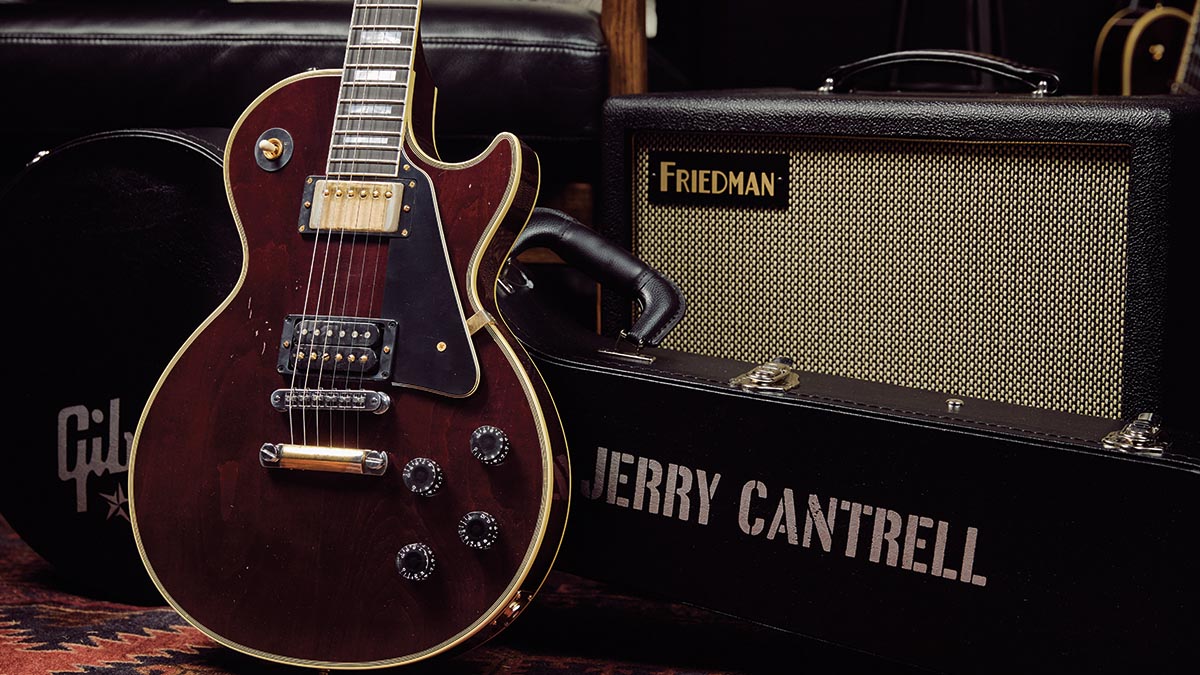
“So we just had it around. We were aware at that point that our first record had some impact, and it was a rock record, but see, all the music I grew up listening to and the artists I was influenced by… there are times to get quiet and use different feels and different sounds. It’s not just about full force all the time. We messed around with every element we could. Our attitude was to do what we felt and never try to repeat what we already did, because that’s done. So it was just about moving forward.
“I’ve got to give credit to [Alice in Chains drummer] Sean [Kinney]. We were having a meeting one day and we had these tunes, and he was like, 'Man, we should make an EP of those. I had a dream last night that we put those out on an EP and it was called Sap.' So we did it.
“We were already writing some of the stuff that would become Dirt, and we knew it would be a while, so we said, 'Why don’t we put that out between the records? It’s like a cool little thing for the fans. We won’t advertise it or have the record company take out any ads or anything. We’ll just make it, and then we’ll put it in the stores.'
“Columbia was down with that idea from a promotional angle. I’m glad we did that, because it opened us up. We didn’t get pegged or be expected to follow a narrower kind of approach.”
In hindsight, it was good that you released Sap so early in your career. As you say, it prevented you from being pigeonholed.
“As long as you keep writing good songs. Fans are discerning. You throw them a turd and they’re not going to dig that. I’ve always been a firm believer in this. I don’t care if it’s rap, country, disco, rock ‘n’ roll, metal, punk, whatever you want to call it – a good song is a good song, you know what I mean? As long as it’s good, people will follow you.”
Before Alice released Dirt, the band went on tour as openers for Van Halen. What do you remember about that tour and Eddie?
“In our band, Van Halen was always well-loved and embedded in our psyches; and, of course, as a guitar player, Eddie is the top of the mountain in terms of uniqueness and a commitment to excellence. There was nobody like him, and there never will be. That’s just the way it’s supposed to be. That tour was really impactful from a career standpoint and also just an achievement level of, like, 'Wow. OK, I guess we can play with these guys.'
“I remember showing up for the first gig and walking up on the deck and getting ready to play the show. Eddie was sitting there with his guitar on, running scales and he’s smiling and shit. He came over and introduced himself; he was hanging right on the side of the stage in my little pit with my guitars and my guitar tech.
“Valerie was with him; Wolfie was newly born and in her arms. So that’s how the tour started for me, like, 'Holy shit. OK, I’m standing here and fucking Eddie Van Halen is smiling and playing guitar and fucking meeting me. And I’m going to go on stage in about five minutes.' [Laughs]
“I go on to play, and he stayed there and watched me. I think it was the worst fucking gig in my life – at least in my mind because I was so nervous that the dude was sitting watching me. Finally, he went back to his dressing room to get ready for his show, and I think I started to relax a little bit more.
“We stayed with Van Halen for a couple of legs and made really good friends with Eddie. There were a lot of late-night hangs, a lot of pool halls and bars. We’d always end up in each other’s rooms with a couple of guitars. When he came to town, he’d give me a call and vice versa. We also became friends with Sammy. He and I have been buds for a long time.”
Let’s get into your new album. Beyond the sound of your voice, which is always so pleasing to hear, your stacked guitars have a sound all their own. Lots of guitarists layer guitars, but you manage to create a signature sound. What’s your secret?
“I’ll go back to Eddie Van Halen. I remember reading one time about how Ted Nugent was perplexed by Ed’s sound. The story goes that he went over and plugged into Eddie’s shit to see what kind of secret stuff he had in his rig, and when he started playing he just sounded like Ted Nugent. I had the exact same experience.
Eddie is the top of the mountain in terms of uniqueness and a commitment to excellence. There was nobody like him, and there never will be
“Once in a while at a soundcheck, I would plug into his amp and I sounded like Jerry Cantrell. In turn, Eddie would play through my shit and sound like Eddie Van Halen. It’s in the fucking hands. It’s in your flesh. You can mess with gear and it will give you a little bit of color, but it’s really in the flesh.”
Atone has such a dirty blues vibe. What are your blues influences?
“Yeah, I call that one a 'psycho hillbilly stomp'. Blues – it’s hard to say. All rock ’n’ roll is based on the blues, a mix of blues and country. That’s an interesting tune. I was chewing on it for a while. The main guitar riff and the chorus progression were in my head since probably the late '90s.
“I demoed it with Sean on some shitty little tape, and then I lost it, so I had to go by memory. I had the chorus, but that beautiful middle section was something else – it takes you years to get to the point where you go, 'OK, now it’s a fucking song.' The weird thing about it is, it’s in an open major tuning, but it sounds minor because of how I play it. Tyler Bates was mystified by that.”
Black Hearts and Evil Done and Prism of Doubt have a country-rock feel that’s reminiscent of Elton John’s Tumbleweed Connection, which was basically his love letter to country music.
“You’re in the right zone. You can really hear a lot of the roots of what I grew up listening to, the music of the '60s, '70s and '80s and '90s, too. Listening to this record takes me back to being a kid and discovering rock ’n’ roll for the first time. Prism of Doubt reminds me of Steve Miller mixed with a little Frank Black Pixies. Black Hearts is cool; it’s got a country-folk thing going on.”
You’ve got the pedal steel there.
“Great pedal steel player – Michael Rozon. He did four or five tracks.”
Your harmonized guitar solo on Black Hearts works as a nice contrast.
“Yeah, I get to do that every once in a while. Like on [Alice in Chains’] Whale & Wasp and a couple of solos, there’s almost an Allman Brothers Band feel.
Dismembered sounds like it’s coming from the Rolling Stones’ Exile on Main St. period. Fair enough?
“Yeah, there’s a little Stones, a little Creedence. It’s got all that. The record has some light and some space. It’s like a summer record, almost. It’s a very good driving record.”
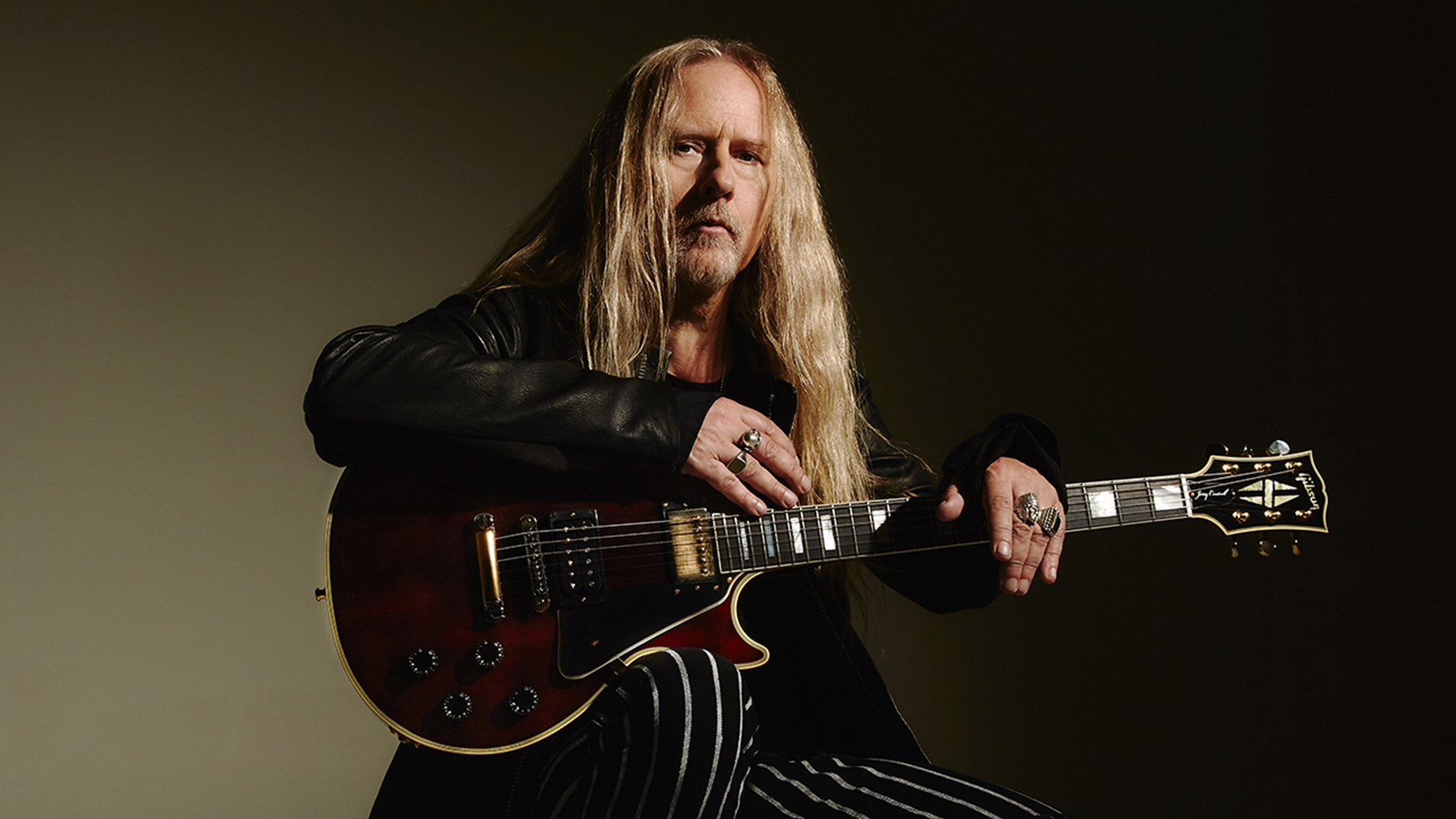
You do end on a somber note, though, with your version of Goodbye.
“Yeah, that’s the last song on [Elton John’s] Madman Across the Water. I didn’t intend for it to end this record; it was just one of those serendipitous things. One of the most amazing things for me has been developing a friendship with Elton. We got to record with him on the Black Gives Way to Blue record, which was incredible, and we’ve been to each other’s shows – it’s wonderful.
“I sent him a demo of my version of the song and I sent it to David, his partner; I just wanted Elton’s permission and to make sure he was OK with me doing it. Four o’clock in the morning I get a call from David: 'Elton is sitting at the breakfast table right now sobbing at how beautifully you did his song.' Right after that, Elton called and said, 'It’s beautiful. It’s fucking amazing. Of course, you have my permission.'”
One of the most amazing things for me has been developing a friendship with Elton. We got to record with him on the Black Gives Way to Blue record, which was incredible
What were your main guitars on the record?
“It’s always a healthy mix of Les Paul and G&L Rampages. That’s my main mix, but I’ll use anything to get the tone. We used a bunch of Gibson and Martin acoustics, some Guild. Mostly it was G&L Rampages, Pauls and and SGs. I also used a couple of Explorers and a Firebird. There’s a ton of Gibson on the record.”
You have some of your own Gibson signature models coming out.
“We’ve got a whole bunch of stuff planned for the next year or two. Everybody at the company has been really cool, and we’ve been trying to design kind of Cantrell versions of some Gibson classics. We’re coming out with the Les Paul first. It’s based off a translucent wine-colored Les Paul that I’ve had for years.
“I got four Les Pauls in the early '90s – white, which turned into the cigarette-burned one. That’s kind of got an iconic look to it. There’s also a translucent blue one, the translucent wine and a black one. I use them consistently, but the first one out is the wine. We’ve done a few versions of the Cantrell signature model G&L, but these will be my first signature models for Gibson. We’ve got some acoustics coming, some electrics coming. It’s going to be cool.”
What’s the status of Alice in Chains right now?
“When we do a campaign, it’s a good long commitment from writing, recording, getting a record out and then going out and touring it. Generally, we take a little time off after that. Unfortunately and fortunately, our time off was during the pandemic. I was planning on having this record out last year, touring on it last September, and then I’d see what’s up with Alice.
“Everything got pushed back. Right now, I’m just concentrating on gearing up for a cool campaign and looking forward to doing some shows to support my record. With Alice, and also for myself, we wanted to be cautious and just wait.
“It looks like we’re going in the right direction, but we’re still seeing some countries fall back, and that’s pretty tough for touring. I think I’m just going to wait. We’re going to book some sort of announcement, some dates for next year. And then Alice will probably do some shows – probably next year – as well.”
- Brighten is out now via Double J.
Joe is a freelance journalist who has, over the past few decades, interviewed hundreds of guitarists for Guitar World, Guitar Player, MusicRadar and Classic Rock. He is also a former editor of Guitar World, contributing writer for Guitar Aficionado and VP of A&R for Island Records. He’s an enthusiastic guitarist, but he’s nowhere near the likes of the people he interviews. Surprisingly, his skills are more suited to the drums. If you need a drummer for your Beatles tribute band, look him up.

